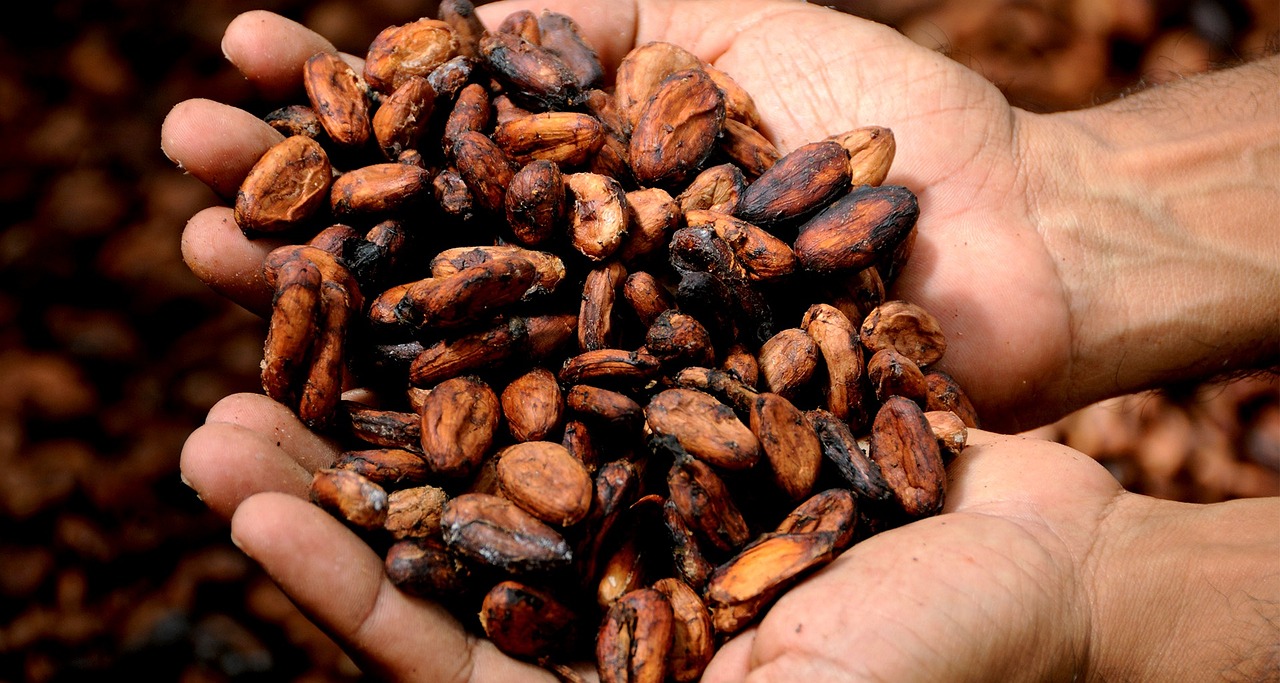Cocoa Erases Early Gains as Dollar Strength Sparks Long Liquidation

December ICE NY cocoa (CCZ24) today is down -125 (-1.62%), and December ICE London cocoa #7 (CAZ24) is down -2 (-0.04%).
Today, cocoa prices gave up an early advance and turned lower after the dollar index (DXY00) rallied to a 2-month high, which sparked long liquidation in cocoa futures. Cocoa prices initially moved higher today as heavy rain in West Africa has caused flooding and kept cocoa farmers out of their fields, delaying harvest. Also, the heavy rain makes it harder to dry harvested beans, lowering their quality.
Also, lower cocoa production in the Ivory Coast, the world's largest producer, supports cocoa prices. Government data today showed that Ivory Coast farmers shipped 100,264 MT of cocoa to ports from October 1 to October 13, down -12% from 114,000 MT shipped the same time last year.
Shrinking global cocoa stockpiles are also bullish for prices. ICE-monitored cocoa inventories held in US ports have been trending lower for the past 15 months and fell to a 15-year low last Tuesday of 1,998,398 bags.
Earlier this month, NY cocoa fell to a 4-3/4 month nearest-futures low after the European Commission postponed an anti-deforestation law for one year. The legislation, previously scheduled to go into effect December 30, is aimed at curbing forest clearance in countries that send products, including cocoa, to the EU. The postponement of the law allows certified cocoa stockpiles held at European warehouses to be used to satisfy contracts, reducing concerns that the new law would lead to the decertification of the cocoa and limiting existing cocoa supplies.
Cocoa also had support after Ghana's Cocoa Board (Cocobod) on August 20 cut its 2024/25 Ghana cocoa production estimate to 650,000 MT from a June forecast of 700,000 MT. Due to bad weather and crop disease, Ghana's 2023/24 coca harvest sank to a 23-year low of 425,000 MT. Ghana is the world's second-biggest cocoa producer, and its 2024/25 cocoa harvest begins in October.
An increase in cocoa production by Cameroon, the world's fifth-largest cocoa producer, is bearish for cocoa prices. On August 21, Cameroon's National Cocoa and Coffee Board reported that 2023/24 (Aug/July) Cameroon cocoa production rose +1.2% y/y to 266,725. Also, Nigeria's August cocoa exports rose by +6.8% y/y to 14,984 MT. Nigeria is the world's sixth-largest cocoa producer.
Cocoa prices were supported by better-than-expected cocoa demand in Q2, although demand likely faded in Q3 due to high prices. The National Confectioners Association reported on July 18 that North America Q2 cocoa grindings rose +2.2% y/y to 104,781 MT, stronger than estimates for a slight decline. Also, the Cocoa Association of Asia reported on July 18 that Asian Q2 cocoa grindings fell -1.4% y/y to 210,958 MT, a smaller decline than expectations of -2.0% y/y. The European Cocoa Association reported on July 11 that Q2 European cocoa grindings unexpectedly rose +4.1% y/y to 357,502 MT, versus expectations of a -2% y/y decline.
In a bullish factor, the International Cocoa Association (ICCO) on August 30 raised its 2023/24 global cocoa deficit estimate to -462,000 MT from May's -439,000 MT, the largest deficit in over 60 years. ICCO also cut its 2023/24 cocoa production estimate to 4.330 MMT from May's 4.461 MMT. ICCO projected a 2023/24 global cocoa stocks/grindings ratio of a 46-year low of 27.4%.
More Cocoa News from Barchart
- Below-Normal Rain in Brazil Boosts Coffee Prices
- European Commodities: How Weather is Impacting Coffee and Cocoa Prices
- Sugar Prices Settle Higher on Reduced Sugar Output in Brazil
- Cocoa Prices Climb on Harvest-Disrupting Rains in West Africa
On the date of publication, Rich Asplund did not have (either directly or indirectly) positions in any of the securities mentioned in this article. All information and data in this article is solely for informational purposes. For more information please view the Barchart Disclosure Policy here.